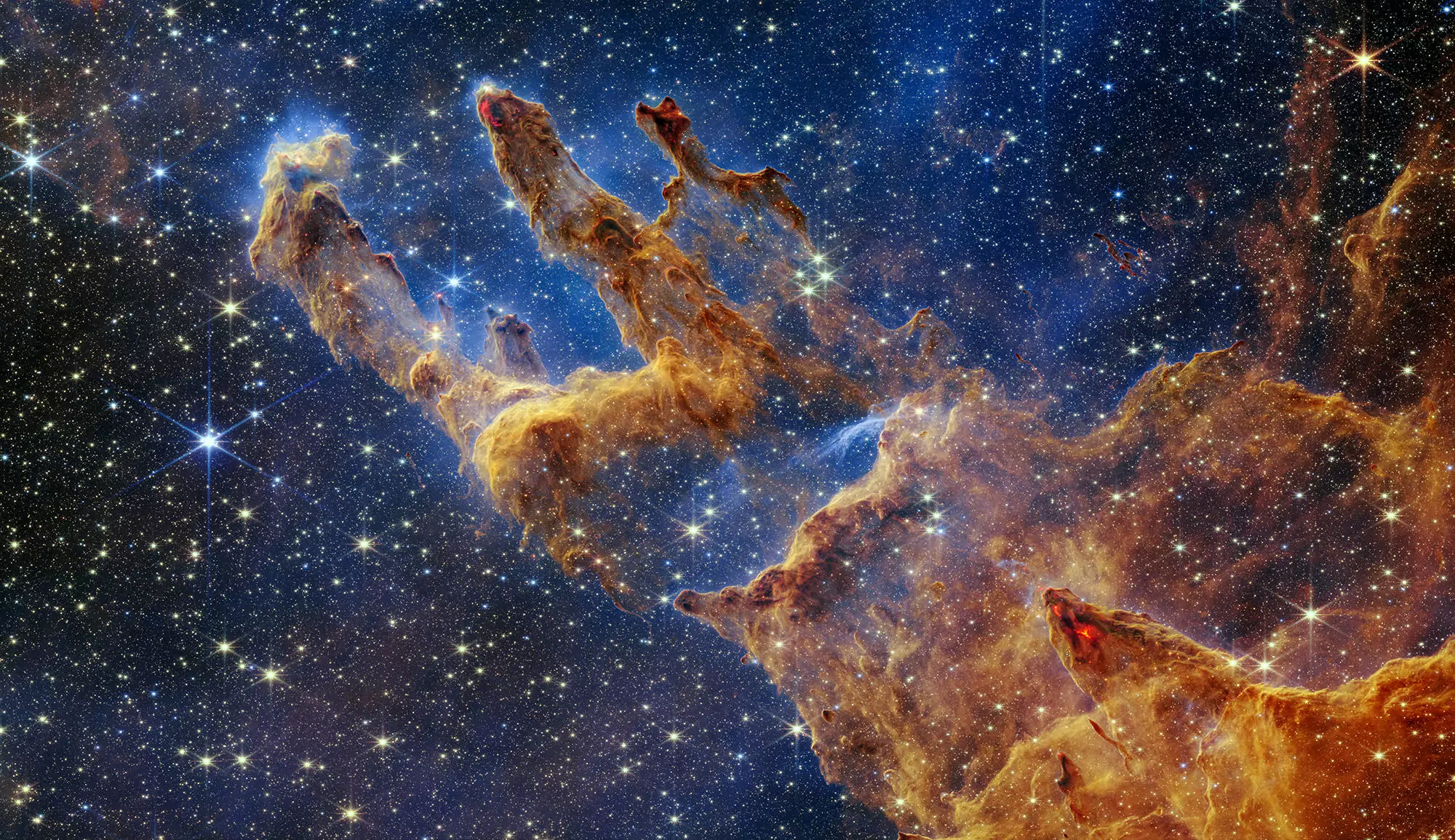L’Observatoire de Paris - PSL est un acteur majeur et reconnu dans le développement de grands projets astronomiques menés à l’échelle planétaire.

Relations Internationales
L’astronomie est une science intrinsèquement liée à l’exploitation de grands instruments au sol ou dans l’espace et de ce fait guidée par les collaborations internationales. Cette dimension internationale fait partie des grandes missions de l’établissement Observatoire de Paris – PSL, qui l’intègre naturellement dans sa stratégie globale.
L’État fournit par ailleurs un cadre dans lequel notre politique internationale peut se déployer, qui comprend à la fois la politique nationale en matière de Protection du Patrimoine Scientifique et Technique (PPST) et des directives ministérielles spécifiques qui dépendent du contexte géopolitique.
Aperçu des relations internationales de l’Observatoire de Paris
Les activités de recherche de l’Observatoire de Paris-PSL se traduisent par un très grand nombre de publications impliquant des collaborations internationales. En 2021, ces co-publications impliquaient ainsi 114 pays. L’analyse détaillée des publications et des citations menée chaque année par la Bibliothèque de l’Observatoire de Paris-PSL met en lumière un groupe plus resserré de pays avec lesquels nos équipes collaborent plus particulièrement : les Etats-Unis, le Royaume-Uni, l’Allemagne, l’Italie, l’Espagne et les Pays-Bas. L’analyse plus fine des affiliations universitaires ou institutionnelles révèle une très grande diversité dans les relations internationales qui se nouent naturellement au gré des collaborations scientifiques au sein des équipes de recherche, des post-doctorats effectués par nos jeunes chercheurs et/ou des consortia instrumentaux.
L’Observatoire de Paris-PSL collabore en effet avec les agences spatiales internationales aux grandes missions spatiales comme Cassini, Rosetta, Gaia, et plus récemment Solar Orbiter, Mars2020, BepiColombo, JUICE, ainsi qu’aux infrastructures de recherche au sol comme l’instrumentation ESO dont le VLT et l’ELT européen, CTAO, ou LOFAR/NenuFAR et SKAO pour la radioastronomie basse fréquence.
L’ensemble des accords de coopération existants, notamment ceux liés à la mise en place de contrats doctoraux, fait à nouveau apparaitre une large diversité de pays, comme le Japon, l’Italie, la Chine, les Pays-Bas, l’Allemagne, la Roumanie, l’Australie, les Etats-Unis. L’Observatoire de Paris entretient avec ces pays des réseaux de collaboration structurés autour de sujets stratégiques majeurs dans le cadre de consortia de grande envergure, d’accords-cadres ou de conventions particulières avec des partenaires, qui sont détaillés ici. L’Observatoire de Paris-PSL participe ou a participé également, en tant que coordinateur ou partenaire, a plus d’une soixantaine de projets des programmes-cadres européens pour la recherche :
L’internationalisation des formations est par ailleurs un axe stratégique de développement pour les Programmes Gradués de l’Université PSL et pour nos parcours et mention de Master en particulier, avec deux objectifs bien identifiés : l’ouverture à l’international de nos formations en tant que vecteur d’attractivité et la mobilité internationale en tant que moyen d’accompagnement privilégié pour nos étudiants et jeunes chercheurs vers l’autonomie scientifique. Plusieurs actions en sens sont déjà mises en place par le Programme Gradué Astrophysique de PSL et par l’UFE, comme des bourses de mobilités ou césures, des PhD tracks ou la participation au programme européen Erasmus+.
Enjeux et priorités
L’Observatoire de Paris-PSL a adopté en 2024 une politique internationale qui s’appuie sur trois grands enjeux :
- La coopération internationale en tant que moteur d’une recherche menée au meilleur niveau. La coopération internationale est un élément clé d’une recherche de haut niveau. Elle se construit au gré des collaborations nouées au quotidien par les équipes de recherche. Le rôle de l’établissement (à travers notamment le SRCV) est ici celui de faciliter l’accompagnement au montage de projet de collaboration scientifique et à la négociation et à la rédaction d’accords de collaboration ou de contrats de recherche ou de développement de dispositifs expérimentaux.
- L’ouverture à l’international en tant que vecteur d’attractivité de nos formations. L’internationalisation de nos Master est une priorité du Programme Gradué Astrophysique de PSL et de l’UFE, notamment dans le but d’accroitre le flux d’excellents étudiants entrants en M1. Ce volet fait l’objet d’actions visant à valoriser les liens formation-recherche comme vecteur d’attractivité de nos formations et, à travers elles, de l’établissement.
- Accompagner nos étudiants et jeunes chercheurs vers l’autonomie scientifique grâce à la mobilité internationale. La mobilité internationale est une étape essentielle dans l’acquisition de l’autonomie scientifique et la consolidation des dossiers de candidature au recrutement. Le développement de réseau de collaborations favorisant la circulation des étudiants et/ou jeunes chercheurs permet de renforcer la professionnalisation et l’employabilité des étudiants.
Au coeur de l’Université PSL
L’Observatoire de Paris - PSL occupe une place centrale dans la stratégie de collaboration internationale mise en œuvre par l’Université PSL, ce qui lui permet aussi d’accroître sa propre visibilité et son attractivité internationale.
Les trois enjeux de la politique internationale de l’Observatoire de Paris s’inscrivent en particulier pleinement dans la politique internationale mise en œuvre par l’Université PSL, en particulier les enjeux #2 et #3 qui se traduisent directement par des actions portées par le Programme Gradué Astrophysique de PSL.
En termes d’attractivité et de soutien aux jeunes talents, l’Observatoire de Paris a mis en place un Programme Post-Doctoral en Astrophysique de l’Observatoire de Paris-PSL qui attire les candidatures de nombreux jeunes chercheurs et jeunes chercheuses étrangers.
